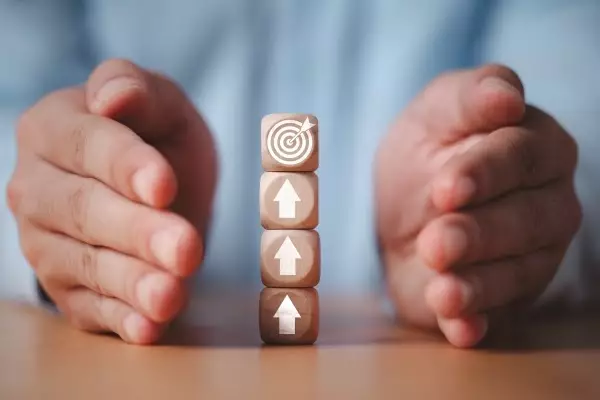
Relapse prevention is one of the most critical aspects of addiction treatment. If you are not prepared for the possibility of a relapse, you are much more likely to experience one. This article will discuss some relapse prevention strategies that can help you stay clean and sober.
If you’ve recently completed a drug treatment program, it can be challenging to integrate back into normal life and avoid a relapse. Recovering from an addiction is a process that requires dedication, discipline, and determination.
It would be best if you remain vigilant in your efforts to stay sober to prevent the temptations that may result in a return to substance abuse. You can do many things to help avoid relapsing and stay clean.
A strong support network of friends and family, attending regular meetings at an Alcoholics Anonymous or Narcotics Anonymous meeting, and finding a mentor or volunteer opportunity can all be ways of staying accountable and on track with your goals of living sober.
Tips On How To Avoid A Relapse
The following relapse prevention techniques can also help reduce your risk of returning to drug or alcohol addiction and tackle some of the triggers that may lead you back into old habits.
Set Goals
Before you even finish a drug treatment program, it’s helpful to set goals. This can be especially useful if you’ve been in a substance abuse treatment program for a while and have been unable to make progress or at higher risk of relapse, such as a long-term, in-patient program.
It can help to clearly define what is important to you and identify the things you need to change or modify in your life. It can also be helpful to evaluate your strengths and weaknesses, set realistic goals, and construct a plan for how to achieve them.
This can be especially helpful if you’re struggling with substance abuse and are facing cravings and urges. Setting goals can help you stay focused and motivated, helping to keep your mind and attention occupied with positive things and future aspirations that you are working toward.
Create A Relapse Prevention Plan
Many treatment programs will help you create a plan and teach you relapse prevention skills. This tool allows you to identify the risk factors that are most likely to lead to a relapse. It’s helpful to identify the situations and triggers that might lead you to a return to substance abuse to be mindful of and prepared for them.
This allows you to be proactive and prepared to handle them positively and constructively. It can also be helpful to incorporate positive coping skills that you can use when you feel challenged or faced with temptation.
You may have learned and applied positive coping skills or skills in your initial treatment program. It’s helpful to write all of these down in your relapse prevention plan so that you can refer back to them when needed.
It's best to keep this relapse prevention plan private so that others don’t know about your weaknesses or potential for relapse. This can help you feel less embarrassed and more empowered and confident in your efforts to stay sober.
Don’t Isolate Yourself
Many newly sober people often choose to isolate themselves and avoid social interaction. This can be especially true following a drug treatment program.
While it can be helpful to remove yourself from certain situations, such as parties, bars, and environments that trigger urges to use substances, it’s also important to remain socially engaged and active.
This can help you stay accountable and connected with your support network and help you avoid feeling lonely and isolated. It can also help you prevent over-thinking and obsessing about your thoughts, feelings, and cravings.
Engaging in healthy social activities, such as volunteering, joining a sports league, or joining a club or organization, can help you remain engaged with others and prevent feelings of loneliness and isolation. It can also help you focus on positive things and avoid dwelling on your cravings and urges.
Have A Solid Support System
One of the best ways to prevent a relapse is to have a solid support system. These people can help you through tough times and provide you with the accountability to stay on track.
Having a solid support network of friends and family can help you avoid relapse and stay clean. Having people in your life that you can go to for encouragement and support when you’re struggling can help you stay on track with your goals and help you avoid falling back into old habits.
Having people in your life that you can talk to about your struggles can help you avoid feeling alone and isolated, keeping you accountable for your actions and choices. It’s important to find support from people who are positive and who are not judgmental or critical of you.
You want to be around people who will encourage and support you in your efforts to stay sober, not put you down or criticize you for your mistakes or missteps. It can also be helpful to find a mentor or role model who has succeeded in overcoming an addiction.
Stay In Touch With Your Support Network
As you progress through your recovery, staying in touch with your support network can be helpful. While you might be tempted to isolate yourself as you begin to sober up, this can lead to feelings of loneliness and make you more prone to relapse. It can also be helpful to reach out to your support network.
For example, if you’re attending a drug treatment program, you can reach out to your counselor or other program members and share your progress and struggles. It can also help find new people to become part of your support network. This can help you stay accountable and connected with others who understand what you’re going through while helping to prevent feelings of isolation.

Develop Healthy Coping Mechanisms
It is also essential to develop healthy coping strategies for when cravings and internal or external triggers arise. This could involve exercise, journaling, meditation, or deep breathing methods. Find what works for you and have a plan in place for when difficult situations arise.
Emotional relapse can happen when we feel overwhelmed, stressed, or triggered, and we don’t have a healthy way to cope with those feelings. Physical relapse can happen when we don’t take care of our bodies, or we allow ourselves to become too exhausted.
A helpful relapse prevention skill is learning how to pause. This means taking a moment to stop and think about what you’re feeling before reacting.
Make New Friends And Meet New People
It can also be helpful to make new friends and meet new people. This can be especially helpful following a drug treatment program where you may have been confined with other people dealing with addiction.
It can be helpful to break out of your comfort zone and actively pursue new opportunities for friendship and socializing. This can help you avoid feelings of isolation and loneliness and help you stay connected with others, and build a new support network.
Commit To Mindfulness And Self-Care
Committing to mindfulness and self-care practices throughout recovery can help you stay in the moment, focus on the now, and not get caught up in the past or future.
It can also help you stay positive and not get bogged down in negative feelings and emotions that may make you more likely to relapse. It helps you to stay aware of your feelings and emotions and identify the triggers that lead to cravings and urges.
This can help you be more prepared for these triggers and know how to handle and avoid them. It can also help you remain focused and engaged in positive activities and interactions rather than dwelling on your cravings and urges.
Find Meaningful Activities
Finding meaningful activities that are meaningful to you can help you stay focused and engaged during recovery. This can help you avoid feelings of loneliness or boredom and help to keep your mind and attention occupied. It can also help you stay positive and prevent you from dwelling on your cravings and urges.
This could be helpful for you to remain engaged and active and help keep you from slipping into old habits and bad habits. It can also help you stay connected with others and help to keep you accountable for your actions and choices, making you feel more confident and empowered in your ability to stay sober and avoid a relapse.
Find A Purpose Or Mission
Find a purpose or mission in life that you can dedicate your efforts toward. This can help keep you focused on positive activities and help to prevent cravings and urges from consuming and distracting you.
It can help keep your mind and attention engaged and focused on positive things. It can help you feel more valuable and meaningful in life and help you to feel more confident in your abilities to stay sober and avoid a mental relapse.
Develop A Strategy For Handling Triggers
Another excellent relapse prevention technique is to develop a strategy for handling triggers that may lead you to a return to drug and alcohol addiction. This can help you be prepared and ready to handle these triggers when they occur. It can help you have a plan in place and know how to respond to these triggers.
It can also help you stay focused on your goals and objectives and not get sidetracked by cravings or urges. It can also help you be more mindful of your surroundings and the people you interact with to identify and avoid potential triggers.
Final Thoughts
By following these relapse prevention strategies, you can significantly increase your chances of staying clean and sober. If you or someone you know is struggling with addiction, please reach out for help. There are many resources available to assist you on your journey to recovery.






